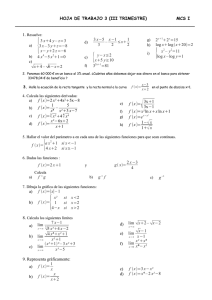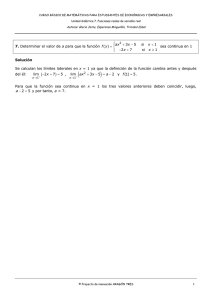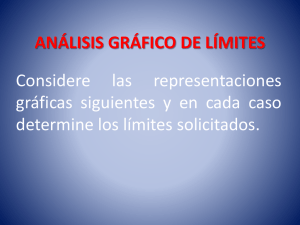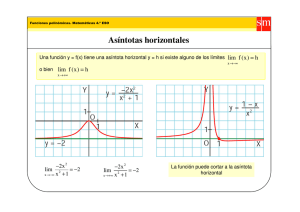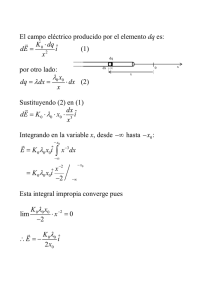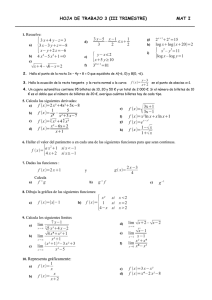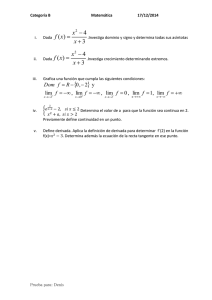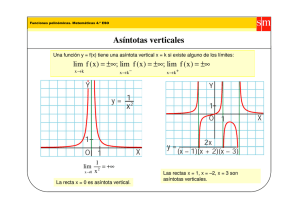∞ ∞ = = x x lim x xlim 1 1 log 1 log 0 log 1 1 log
Anuncio
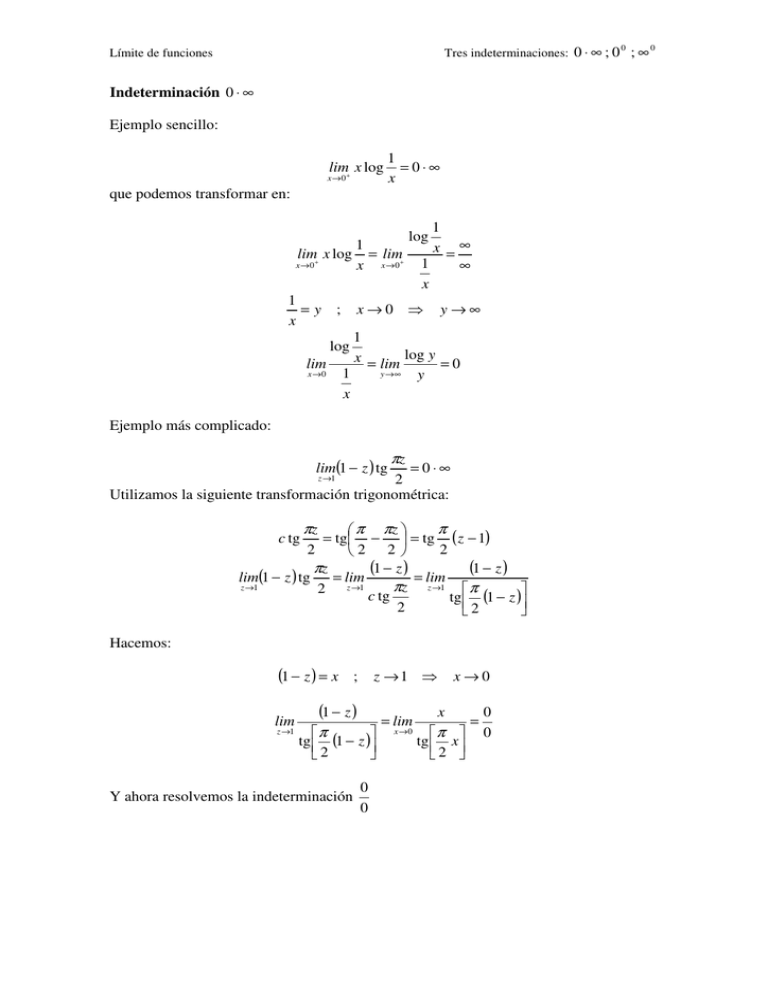
Límite de funciones Tres indeterminaciones: Indeterminación 0 ⋅ ∞ Ejemplo sencillo: lim+ x log x→0 que podemos transformar en: 1 =0⋅∞ x 1 lim+ x log = lim+ x→0 x x→0 1 =y ; x 1 x =∞ 1 ∞ x log x→0 y→∞ 1 x = lim log y = 0 y →∞ 1 y x log lim x →0 Ejemplo más complicado: lim(1 − z ) tg πz =0⋅∞ 2 Utilizamos la siguiente transformación trigonométrica: z →1 πz π πz π (z − 1) 2 2 (1 − z ) = lim (1 − z ) πz lim(1 − z ) tg = lim z →1 πz z →1 π 2 z →1 c tg tg (1 − z ) 2 2 c tg 2 = tg 2 − = tg Hacemos: (1 − z ) = x (1 − z ) lim z →1 z →1 ; tg π 2 (1 − z ) Y ahora resolvemos la indeterminación 0 0 x→0 x = lim x →0 tg π 2 = x 0 0 0 ⋅ ∞ ; 00 ; ∞0 Límite de funciones Tres indeterminaciones: x lim x →0 tg = lim π 2 x →0 x x π 2 0 ⋅ ∞ ; 00 ; ∞0 2 = π x Indeterminación 0 0 lim x x = 0 0 x→0 + ) ( Cuando existe lim f ( x ) = b se tiene lim log f ( x ) = log lim f (x ) . Por tanto si x→a x→a x→a lim x x = a x→0 + Podemos tomar logaritmos y queda: log lim+ x x = log a x →0 Y log lim+ x x = lim+ log x x = lim+ x log x = lim+ x→0 x→0 x→0 x →0 Y haciendo el cambio de variable: 1 =y ; x lim+ x→0 Es decir: log x = lim y →∞ 1 x log y 1 y x → 0+ log x − ∞ = 1 ∞ x y→∞ − log y = 0 = log a y →∞ y = lim lim x x = 1 x→0 + Indeterminación ∞ 0 lim+ 1 x lim+ 1 x x→0 x = ∞0 Al igual que en el caso anterior, si x→0 x =a a =1 Límite de funciones Tres indeterminaciones: 0 ⋅ ∞ ; 00 ; ∞0 Se toman logaritmos y transformamos el tipo de indeterminación: log lim+ x→0 1 x x = lim+ log x →0 x 1 x 1 = lim+ x →0 x = lim+ x ⋅ log x →0 Hacemos el siguiente cambio de variable: 1 =y ; x x → 0+ log lim+ x→0 Luego: 1 x 1 x y→∞ = lim y →∞ log a = 0 log y =0 y a =1 Es decir: 1 lim+ x→0 x x =1 log 1 x 1 x = ∞ ∞
